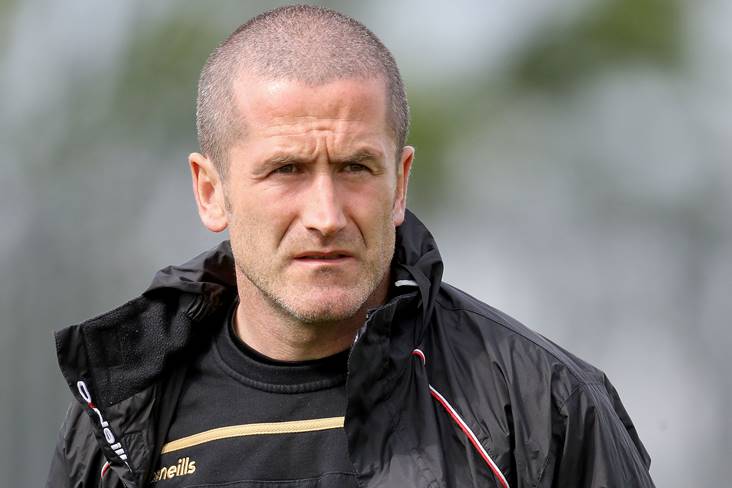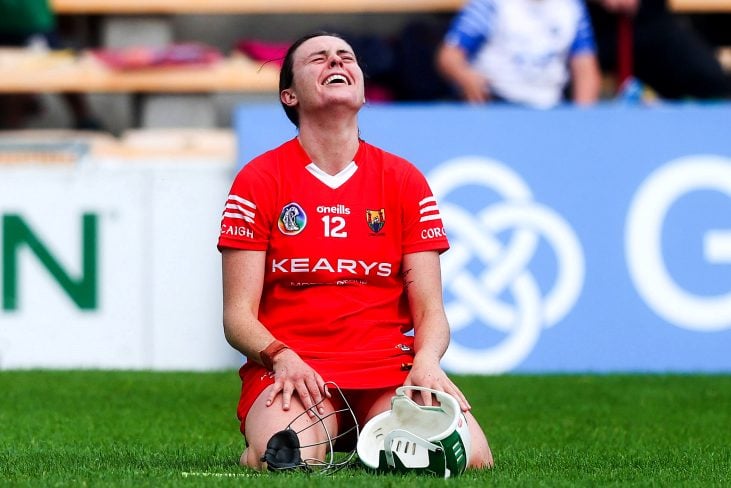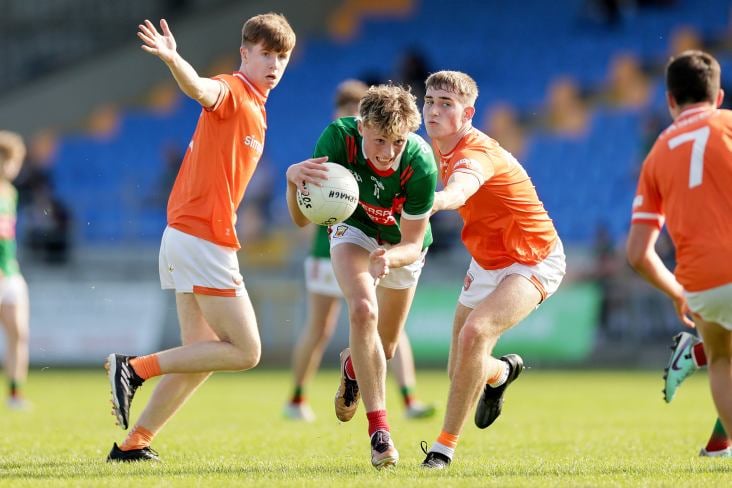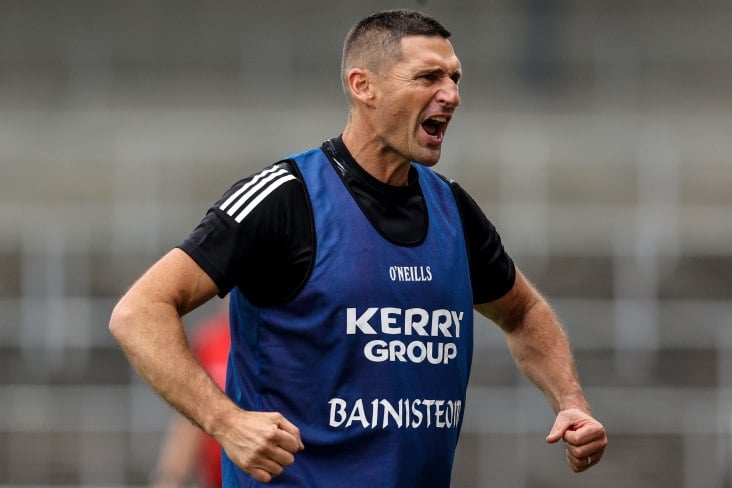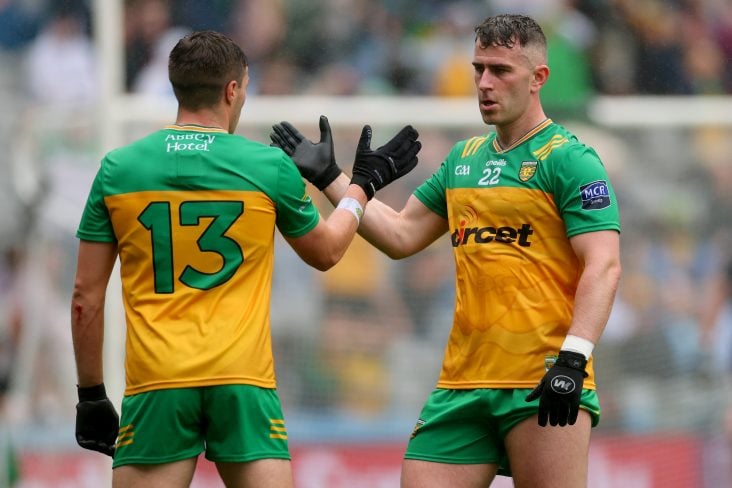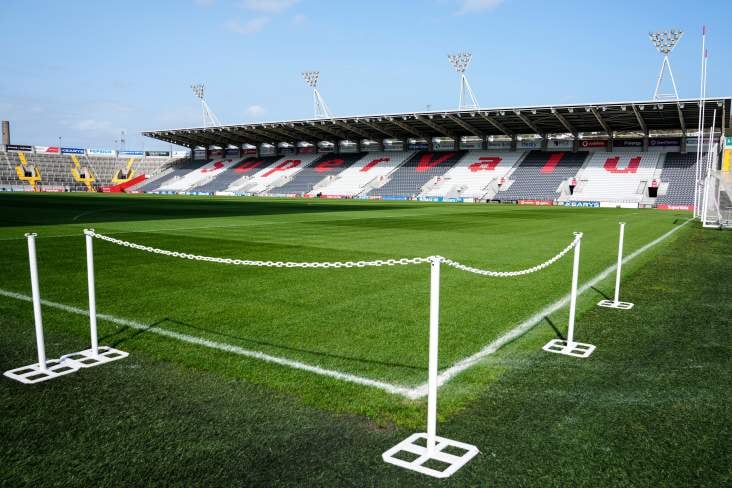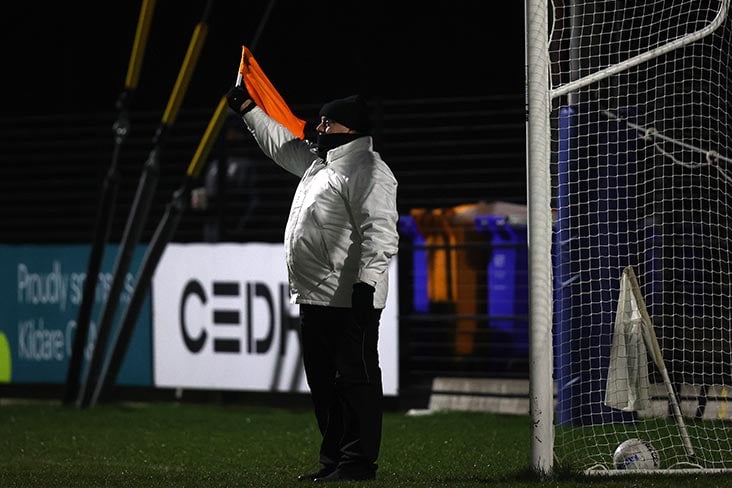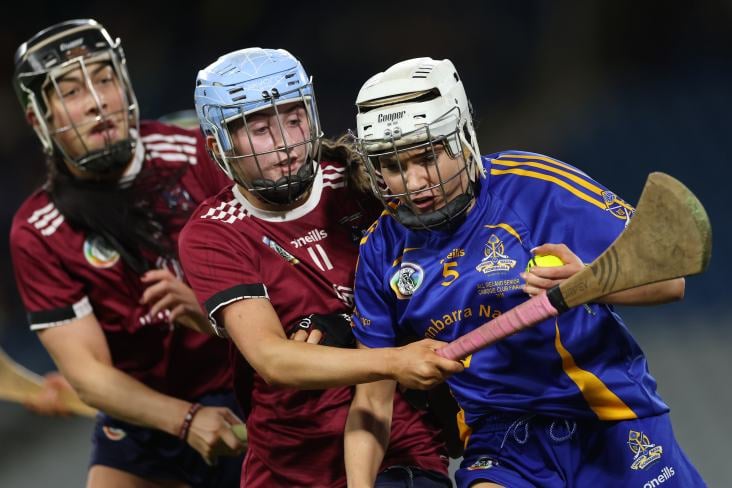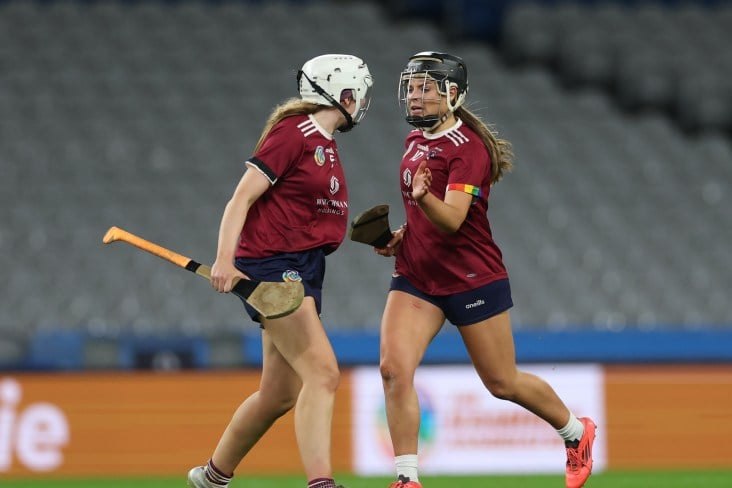Eamonn O'Brien's reign
November 27, 2010A matter of weeks after he had guided Meath to their first Leinster SFC title in the best part of a decade manager Eamonn O'Brien was having to come to terms with the fact that, in the view of a majority of club delegates, he hadn't achieved enough to merit another year in the position.
The County Committee Executive had demonstrated their faith in the Walterstown man by recommending that he be retained as manager, but an amendment proposed by the St Patrick's club and seconded by Trim led to a vote which O'Brien lost 29-32. There was shock and a certain amount of disbelief around the county. The man who had taken the team to an All-Ireland semi-final in his first year at the helm and a provincial crown in his second had been pushed aside.
Proposing the St Patrick's amendment, Johnny Purfield said "the current Meath management are not strong enough to bring the team forward and my club are proposing that this current management not be ratified." Trim representative Sean Gilsenan seconded and a majority of the 61 delegates present at the County Committee meeting in Navan voted in favour of the amendment.
Sean Kelly had already opted out as trainer and selector and with O'Brien now failing in his bid to be returned as manager Meath football seemed to have taken a few steps backwards after a couple of years of making moves in the right direction.
Several delegates questioned the tactics of the Meath management during the latter stages of this year's All-Ireland quarter-final against Kildare. They had a valid point, but overall the team progressed under O'Brien's leadership and with his departure the Royal County will now have a fifth different manager in the space of just seven years. That sounds extraordinary when compared to Sean Boylan's incredibly lengthy reign which stretched to 23 consecutive years.
As well as guiding Meath to their first Leinster success since 2001 and a first championship victory over Dublin since that year too along the way, O'Brien was also looking to the future with the setting up of a development panel consisting of 10 young, up and coming players. These players participated in a training programme aimed at preparing them for the demands of senior intercounty involvement, but with O'Brien's departure the future of the initiative was thrown into doubt.
Turn the clock back to Meath's state of health (or should that be ill health?) before O'Brien was appointed manager late in 2008, replacing Colm Coyle. In Coyle's first year at the helm the Royal County had reached an All-Ireland semi-final where they lost to Cork, beating Galway and Tyrone along the way in the qualifiers, but it all went horribly wrong in '08.
A substantial lead was surrendered when Wexford inflicted an extremely disappointing defeat in a Leinster SFC quarter-final and it got even worse when Limerick ended their championship summer in the first round of the qualifiers. That was surely one of the most humiliating losses ever suffered by a Meath team and with Coyle stepping aside subsequently it was clear that whoever would replace him would have his work cut out to restore confidence and pride.
After a protracted appointment process that man was Eamonn O'Brien who became the second member of the Johnstown family to fill the role. His brother Michael guided Meath to their shock National League success in 1975 when they defeated reigning All-Ireland champions Dublin in the final. Eamonn played in the half-forward line on that team and another brother, Ollie, was at left corner-forward.
Along with other former county players, All-Ireland medal winners Robbie O'Malley, Donal Curtis and Colm Brady, O'Brien set about the task of turning things around. Rebuilding confidence after those disastrous defeats inflicted by Wexford and Limerick had to be a priority, but there was an early blow to hopes of progress when 2008 captain Brendan Murphy left the panel to join up with League of Ireland soccer outfit Longford Town.
There were few signs of progress when Meath shipped a heavy defeat away to Cork in their opening game of the National League Division 2 and then went under to Fermanagh at Pairc Tailteann. Victories followed over Laois and Wexford, draws were achieved against Monaghan and Kildare and Meath concluded their league campaign with a loss to Armagh at Crossmaglen.
It wasn't exactly inspiring ahead of the build-up to their Leinster SFC opener against Dublin who were bidding to maintain their stranglehold on the provincial competition. Dublin proved to be the superior team, winning by 0-14 to 0-12 despite tallying 17 wides. With defeat comes an inevitable post mortem and questions were raised over the decision not to start Joe Sheridan and Peadar Byrne and also some positional choices, most notably the placing of Caoimhin King at full-forward.
It was back to a more orthodox selection when Meath headed out on the qualifier route against Waterford at Pairc Tailteann and with Sheridan starting at centre-forward and contributing three points a runaway 1-20 to 0-8 victory was achieved.
Sheridan and Byrne both starred in the similarly comprehensive 1-20 to 1-5 victory over Westmeath in the second round at Mullingar, before a bit of a struggle followed when Roscommon were overcome by 2-12 to 0-11 at Pairc Tailteann, with David Bray scoring a 58th minute goal which helped to seal the win. Meath had been favoured by the draw for the early rounds of the qualifiers, but it got a great deal tougher when they came face to face with Limerick in the fourth round at Portlaoise.
The scars of the previous year's 4-3 to 4-12 defeat against the same opposition had barely healed, but Meath clearly had revenge on their minds. They achieved it with a 1-13 to 2-9 victory, but it was hard earned after the late sending off of team captain Stephen Bray. The remaining players demonstrated tremendous character to hold onto a fragile lead as Limerick rallied and when the final whistle eventually sounded it was clear how far Meath had come from the depressing depths of the humiliating loss to the Shannonsiders in 2008.
Ian Ryan tormented Meath that evening when he contributed 3-7, but this time he was well marshalled by Cormac McGuinness in the first half and by Eoghan Harrington in the second period after he had been switched into the full-forward line. His overall contribution was only three points and two of those came from frees. Corner-back Chris O'Connor scored two second half points and received the RTE 'man of the match' award.
It was a hugely satisfying victory, but the downside was Bray's dismissal which ruled him out of the quarter-final against Mayo following an unsuccessful appeal. This was the first championship meeting of the counties since the infamous All-Ireland final replay in 1996 and the outcome was the same, with Meath winning by 2-15 to 1-15.
The Connacht champions led by four points with 19 minutes remaining, but the Royal County found most when it mattered as a goal from a Cian Ward penalty proved vitally important. David Bray starred in his brother's absence, scoring 1-3 from play, and substitute Jamie Queeney demonstrated the growing strength of O'Brien's panel by contributing two points.
With Kerry trouncing Dublin by 1-24 to 1-7 the extent of Meath's task in the semi-final against the Kingdom was clear. They made a disastrous start when Darren O'Sullivan goaled from a fourth minute penalty and when Stephen Bray was forced to retire with a shoulder injury three minutes later it looked certain that this wasn't going to be O'Brien's or Meath's day.
The manager must have been reasonably hopeful when Kerry led by only 1-3 to 0-4 at the interval, but when substitute Tommy Walsh scored their second goal a minute after the restart they were well on the way to the final. They pushed further clear and a late goal from Ward was little more than a consolation prize as it finished 2-8 to 1-7.
Meath's dream of a place in the All-Ireland final had been shattered, but the campaign as a whole had done much to restore pride.
A return to the top table of Leinster football looked to be a realistic goal for 2010 as O'Brien planned his second year as manager, with Sean Kelly taking over from Brady as trainer. National League Division 2 victories were achieved at home to Armagh, Westmeath, Laois and Kildare, but Meath struggled on the road and lost away to Down, Tipperary and Donegal which ruined their hopes of promotion.
It was also a difficult year on the injury front, with Niall McKeigue and David Bray long-term absentees and key players like Kevin Reilly and Nigel Crawford missing at various stages. There was also the horrible injury sustained by the great-hearted Mickey Burke in the Leinster Championship replay against Laois which ruled him out of the remainder of the campaign.
Injuries are the dread of all managers and O'Brien had his fair share to contend with in the build-up to the championship, but Meath proved far too strong for Offaly in the opener at Portlaoise, winning by 1-20 to 2-7. Crawford made his 50th championship appearance that day, but an injury sustained in training meant the manager would have to plan without his captain for the provincial quarter-final against Laois at Croke Park.
O'Brien can't have been pleased to see his team surrender three-point leads late in normal and extra-time as Laois battled well to force a replay. Crawford was still absent for the second meeting at Tullamore, but this was a much improved performance which yielded a 2-14 to 0-10 victory. Burke's double leg break and the sending off of goalkeeper Paddy O'Rourke were downsides to a generally good evening's work.
Confidence was high ahead of the semi-final against Dublin, but nobody could have predicted the manner in which Meath would push the reigning champions aside. This must have been one of the most satisfying days of O'Brien's footballing life and there have been many highs, most notably as a player with the great Walterstown team of the late 1970s and the first half of the 1980s, his captaincy of the Meath side which won the Leinster MFC in 1972, that 1975 National League success, as well as his role as a selector with the Meath teams which won All-Ireland titles under Boylan's management in 1996 and 1999.
After Meath had won by 5-9 to 0-13 there was talk of possible All-Ireland glory before they had even completed the job in Leinster. O'Brien's biggest task had to be to maintain focus ahead of the final against Louth. If they were to slip up against the Wee County that extraordinary semi-final success would have counted for little.
The final will always be remembered for Joe Sheridan's late goal which earned a controversial 1-12 to 1-10 win on a day when Meath were poor, the display of Graham Reilly being a notable exception. Unfortunately, the nature of the win detracted from the achievement of winning a first Leinster SFC title in nine years, but the record books will show that Eamonn O'Brien led Meath to their 21st provincial senior success.
Few GAA matches have generated so much controversy and, not for the first time, Meath weren't the most popular team in the country. When it all slowly died down and it was clear that there would be no replay, O'Brien's task was to plot the downfall of rapidly improving Kildare in the All-Ireland quarter-final.
If the comprehensive win over Dublin was a high for the manager, then this was an undoubted low. All appeared to be going to plan when Meath opened up a 1-3 to 0-0 lead, but the advantage was down to the minimum (1-9 to 2-5) at half-time after Kildare had scored their second goal just before the break.
The remainder was hugely disappointing as the Lilywhites took over and Meath had no answer. Kildare won the second half by 0-12 to 0-3, Meath didn't score in the last 14 minutes and the end result was an amazing 14-point turnaround and a 2-17 to 1-12 victory for Kieran McGeeney's team.
Meath had won the Leinster Championship, which should surely have been enough to satisfy most people even allowing for the way it was achieved in the final, but the collapse against Kildare convinced some that it was time for O'Brien to go. Tweet

